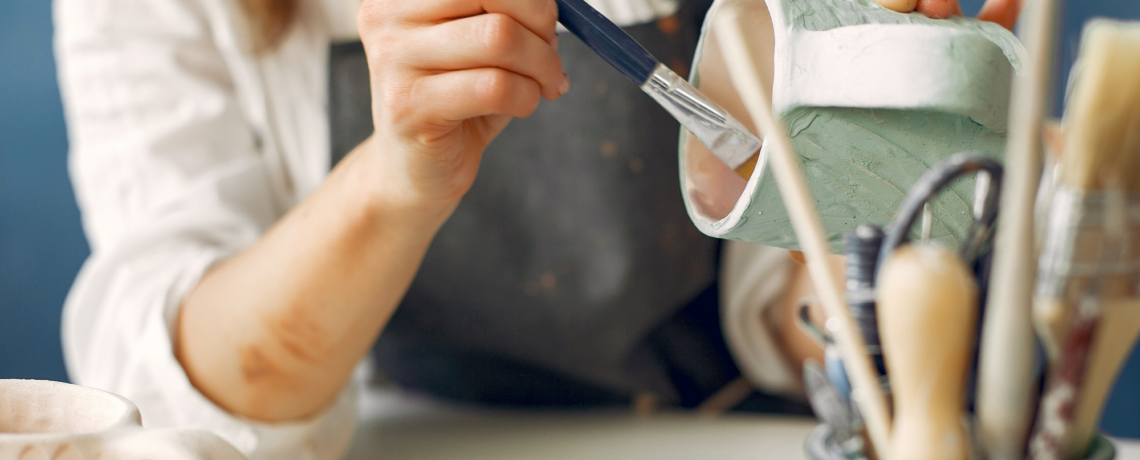 Creativity is often seen as a mystical gift, reserved for artists, writers, and musicians. However, science reveals that creativity is a complex brain function accessible to everyone. By understanding the neuroscience of creativity and adopting specific practices, we can nurture our brains for growth, fostering a growth mindset that enhances our creative potential.
Creativity is often seen as a mystical gift, reserved for artists, writers, and musicians. However, science reveals that creativity is a complex brain function accessible to everyone. By understanding the neuroscience of creativity and adopting specific practices, we can nurture our brains for growth, fostering a growth mindset that enhances our creative potential.
Understanding the Neuroscience of Creativity
Creativity involves various brain regions and networks working together. The primary areas associated with creativity include:
- Prefrontal Cortex: Responsible for executive functions like planning, decision-making, and problem-solving.
- Temporal Lobes: Involved in processing auditory information and language.
- Parietal Lobes: Associated with spatial awareness and sensory information integration.
- Default Mode Network (DMN): Activated during restful introspection and imagination, crucial for idea generation and creative thinking.
These regions and networks interact dynamically, allowing us to synthesize information, make connections, and produce novel ideas. Enhancing these brain functions can lead to greater creativity and a robust growth mindset.
Practices to Stimulate Brain Function and Foster Creativity
- Mindfulness Meditation
Mindfulness meditation has been shown to increase connectivity between brain regions involved in creativity. It reduces stress, enhances focus, and promotes divergent thinking—a key component of creativity. Practice mindfulness by:
- Setting aside 10-15 minutes daily for meditation.
- Focusing on your breath and observing thoughts without judgment.
- Gradually increasing meditation duration as you become more comfortable.
- Physical Exercise
Regular physical activity boosts brain health by increasing blood flow and promoting the growth of new neurons. Exercise also enhances mood and cognitive flexibility, both of which are crucial for creativity. Aim for:
- At least 30 minutes of moderate exercise (e.g., walking, cycling) most days of the week.
- Incorporating activities that require coordination and rhythm, like dancing or yoga.
- Engaging in Novel Experiences
Novelty stimulates the brain’s reward system and encourages the formation of new neural connections. Seek out new experiences to keep your brain adaptable and creative:
- Travel to new places and immerse yourself in different cultures.
- Try new hobbies or learn new skills, such as painting, cooking, or playing an instrument.
- Read diverse genres of books and explore various forms of art.
- Sleep and Relaxation
Adequate sleep is essential for memory consolidation and cognitive function. During sleep, the brain processes information and integrates new ideas, which is vital for creativity. Ensure you:
- Get 7-9 hours of quality sleep per night.
- Maintain a regular sleep schedule and create a relaxing bedtime routine.
- Take short breaks throughout the day to rest and recharge your mind.
- Brainstorming and Mind Mapping
Brainstorming and mind mapping are effective techniques for generating and organizing ideas. They activate multiple brain regions and encourage associative thinking. Practice these techniques by:
- Setting a timer for 10-15 minutes and writing down as many ideas as possible without judgment.
- Creating mind maps with a central concept and branching out with related ideas, using colors and images to enhance connections.
- Embracing Failure and Risk-Taking
A growth mindset thrives on learning from failure and taking risks. This mindset shifts the brain’s response to challenges, making it more resilient and open to new ideas. Foster this mindset by:
- Viewing failures as learning opportunities rather than setbacks.
- Setting challenging yet achievable goals and reflecting on the learning process.
- Celebrating small successes and progress, reinforcing positive behavior.
The Role of Nutrition in Brain Health and Creativity
Nutrition plays a critical role in brain function and creativity. A balanced diet rich in antioxidants, healthy fats, vitamins, and minerals supports cognitive health. Consider incorporating these brain-boosting foods:
- Omega-3 Fatty Acids: Found in fish, flaxseeds, and walnuts, they support brain cell structure and function.
- Antioxidant-Rich Foods: Berries, dark chocolate, and leafy greens protect the brain from oxidative stress.
- Whole Foods: Fruits, vegetables, lean proteins, and healthy fats provide essential nutrients for optimal brain performance.
Conclusion
Understanding the science behind creativity reveals that it’s not a mysterious gift but a trainable skill rooted in brain function. By adopting mindfulness practices, engaging in physical activity, seeking novel experiences, prioritizing sleep, and maintaining a nutritious diet, we can nurture our brains for growth. Embracing a growth mindset further enhances our creative potential, allowing us to approach challenges with resilience and innovation. Start implementing these practices today and unlock your full creative potential!















